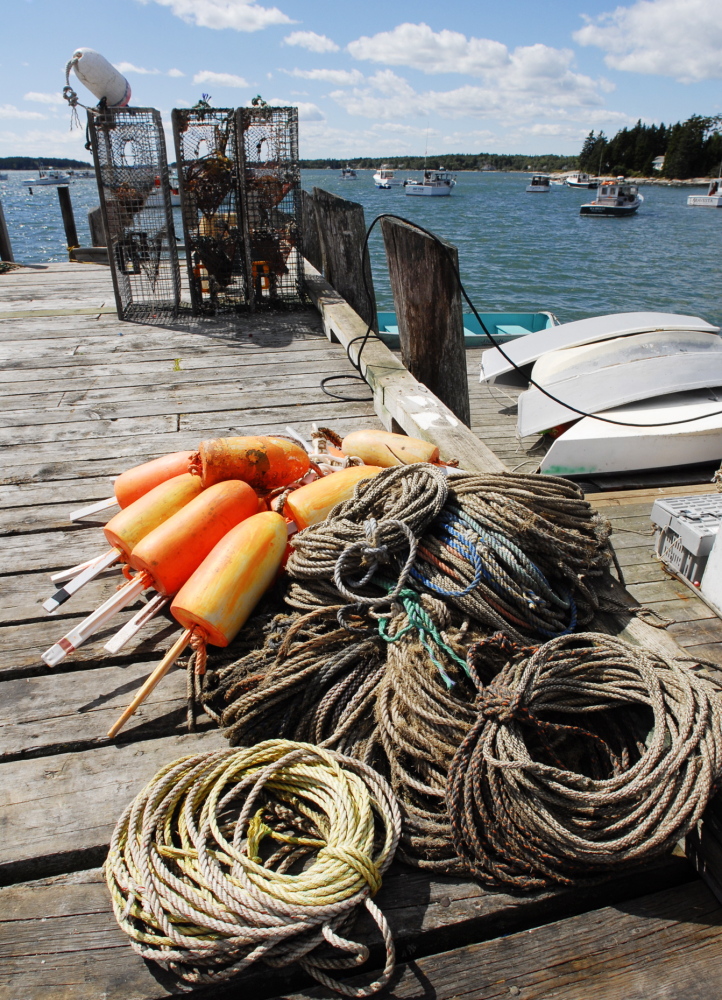JONESPORT — The foundation of Maine’s economy is built on our environment – especially the bounty that comes from our pristine waters.
The Maine lobster industry is a key component of Maine’s economy: It contributes more than $2 billion annually in direct and indirect revenues, and supports our important tourism industry. However, without vigorous enforcement of the Clean Water Act, none of this economic prosperity is possible.
A half-century ago, before the Clean Water Act was enacted, corporations with no regard for Maine and its people dumped pollutants into the Penobscot River and Penobscot Bay, fouling these essential shared resources on which so many people – including the Penobscot Nation – rely for their lives and livelihoods.
Although the enactment and enforcement of the Clean Water Act have provided nature time to heal much of this man-made damage, we still suffer the consequences of this dark period in Maine’s history and still work to undo the damage done by such pollution. Just last year, 7 square miles in the lower Penobscot River were closed to lobstering and crabbing because of the lingering effects of mercury dumped into the Penobscot River by Mallinckrodt and HoltraChem since 1967.
Now, both Gov. Paul LePage and Attorney General Janet Mills seek to return us to an era where corporate polluters’ interests are placed above the right of the people to clean water and safe seafood.
The Penobscot Nation and the federal Environmental Protection Agency are pushing back against the governor’s and attorney general’s misguided priorities and their attempts to turn back the clock to a time when corporate polluters reaped profits by dumping contaminants into our waterways.
All Mainers need to join the Penobscot Nation in supporting the EPA’s efforts to ensure that Maine has the cleanest water and most stringent water quality standards in the nation. A commitment to clean water is the best way to protect and build Maine’s economy.
Maine’s waters bring significant economic benefits to all of the people of Maine. Businesses that are not committed to, or incapable of, meeting EPA standards for clean water should not do business in this state. Corporations that pollute our waters are bad for Maine’s economy and hurt all Maine businesses that depend on our environment to survive and thrive – which describes most Maine businesses, including all Maine lobstermen.
It is not only the people of the Penobscot Nation who demand the waters of the Penobscot River watershed be kept clean of contaminants so that the fish in the river and bay can be safely eaten for sustenance. All of the people who make their home in and along the Penobscot River and Penobscot Bay, and all of the fishermen who make their living from these waters, demand that the Clean Water Act standards issued by the EPA be enforced.
Maine lobstermen, working with other Maine citizens, municipal and legislative officials, and organizations, including the Sierra Club, Islesboro Islands Trust and Penobscot Nation, have had to fight to protect the integrity of the Maine lobster catch and “brand” and demand compliance with the Clean Water Act in Penobscot Bay by the LePage administration.
The Sept. 8 withdrawal of the Army Corps of Engineers-Maine Department of Transportation application for the million cubic yard dredge-and-dump in Searsport – a proposal that violated Section 404(b)(1) of the Clean Water Act – was a victory for preserving Maine’s waters, economy and the reputation for wholesomeness of the Maine lobster brand (albeit likely a temporary victory).
However, the fight to protect the Penobscot River watershed, including the bay, which is the heart of the Maine lobster fishery in the Gulf of Maine, is far from over. We support the Penobscot Nation and the EPA and ask Gov. LePage and Attorney General Mills to stop wasting taxpayer resources defending the right of out-of-state corporations to pollute the water resources of our state.
Keeping our waters clean will bring the greatest prosperity and benefits to Maine’s people and our businesses now, and protect these irreplaceable resources for future Maine generations.
Send questions/comments to the editors.



Success. Please wait for the page to reload. If the page does not reload within 5 seconds, please refresh the page.
Enter your email and password to access comments.
Hi, to comment on stories you must . This profile is in addition to your subscription and website login.
Already have a commenting profile? .
Invalid username/password.
Please check your email to confirm and complete your registration.
Only subscribers are eligible to post comments. Please subscribe or login first for digital access. Here’s why.
Use the form below to reset your password. When you've submitted your account email, we will send an email with a reset code.